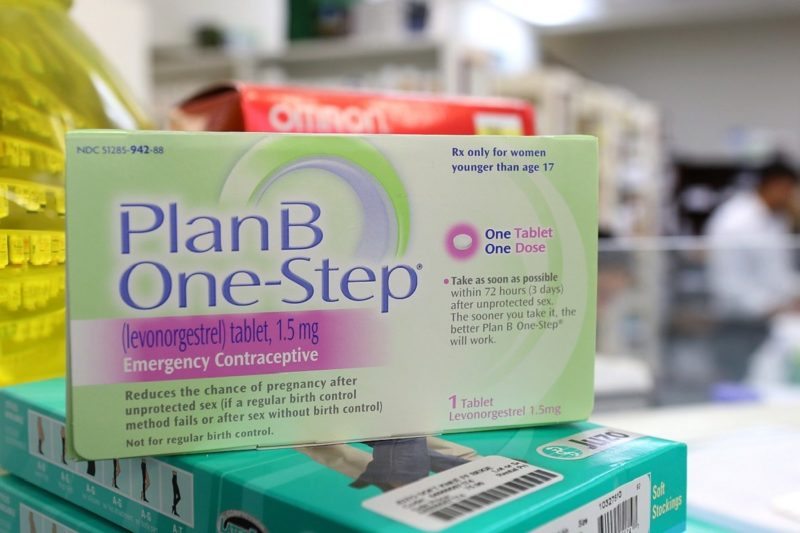Supreme Court Rejects Challenge to Washington Law Requiring Pharmacies to Stock Plan B
On Tuesday the Roberts Court turned away a challenge by a pharmacy-owning family who claimed a Washington state law that requires pharmacies to stock Plan B or other emergency contraception violated their religious beliefs.

The Supreme Court on Tuesday refused to hear a challenge by a pharmacy owner who claimed religious objections to a Washington law requiring pharmacies to stock and dispense Plan B or other emergency contraception.
In 2007, the Washington State Board of Pharmacy adopted rules governing the mandatory stocking and delivery of emergency contraception. The rules do not require any individual pharmacist to dispense medication in conflict with their religious beliefs. Instead, if a pharmacy employs a pharmacist who objects to dispensing emergency contraception for religious reasons, the pharmacy must keep on duty at all times a second pharmacist who does not object to dispensing those drugs.
The Stormans family—who own a local grocery store and pharmacy in Olympia, Washington—challenged the rules in 2012, arguing that the rules required them to violate their religious beliefs. Those beliefs, they said, include a conviction that life begins at conception; therefore, emergency contraception acts as an abortifacient, which they also object to providing.
The medical community does not consider emergency contraception to be an abortifacient.
A district court agreed with the Stormans that the rules could force them to violate their religious beliefs by stocking the medication. But in 2015, the U.S. Court of Appeals for the Ninth Circuit reversed and rejected the Stormans’ claim.
On Tuesday the Supreme Court let stand that Ninth Circuit ruling. However, Chief Justice John Roberts and Justices Samuel Alito and Clarence Thomas dissented from that decision. Writing for the dissenting justices, Alito called the case “an ominous sign” for religious liberties protections in the country.
“There are strong reasons to doubt whether the regulations were adopted for—or that they actually serve—any legitimate purpose,” wrote Alito. “And there is much evidence that the impetus for the adoption of the regulations was hostility to pharmacists whose religious beliefs regarding abortion and contraception are out of step with prevailing opinion in the State. Yet the Ninth Circuit held that the regulations do not violate the First Amendment, and this Court does not deem the case worthy of our time,” continued Alito.
“If this is a sign of how religious liberty claims will be treated in the years ahead, those who value religious freedom have cause for great concern,” he continued.
American Civil Liberties Union Deputy Legal Director Louise Melling disagreed with Justice Alito’s assessment of the case. “The court properly refused to take this case,” Melling said in a statement following the order. “When a woman walks into a pharmacy, she should not fear being turned away because of the religious beliefs of the owner or the person behind the counter. Open for business means opens for all,” said Melling.
“Refusing someone service because of who they are—whether a woman seeking birth control, a gay couple visiting a wedding catering company, or an unwed mother entering a homeless shelter—amounts to discrimination, plain and simple. Religious freedom is a core American value and one that we defend, but religious freedom does not mean a free pass to impose those beliefs on others,” Melling wrote.
Meanwhile, Alliance Defending Freedom Senior Counsel Kristen Waggoner, who represented the plaintiffs in the case, expressed disappointment in the decision. “All Americans should be free to peacefully live and work consistent with their faith without fear of unjust punishment, and no one should be forced to participate in the taking of human life,” said Waggoner in a statement after the denial. “We had hoped that the U.S. Supreme Court would take this opportunity to reaffirm these long-held principles.”
